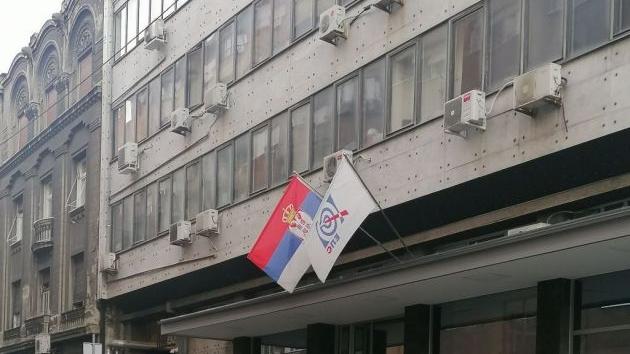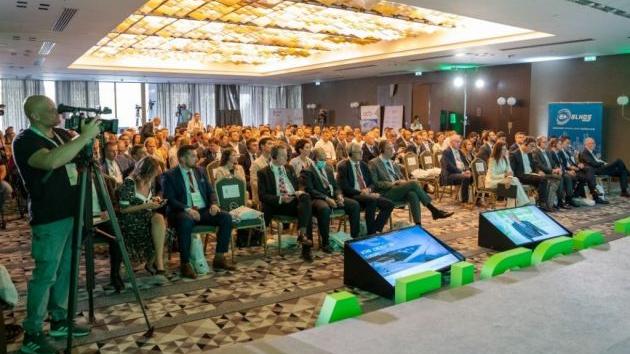Energy Transition in Serbia to Jeopardize 15,000 Jobs Directly and 40,000 Indirectly – How Can Germany Help Us?
Source: eKapija
 Monday, 03.10.2022.
Monday, 03.10.2022.
 15:42
15:42
 Monday, 03.10.2022.
Monday, 03.10.2022.
 15:42
15:42
(Photo: Shutterstock)

Jovanka Atanackovic, the state secretary at the Ministry of Mining and Energy, reminded that 70% of the electricity used by Serbia came from thermal power plants which were very old and close to the end of their life cycle.
– Serbia paid nearly EUR 2 billion for the import of electrical energy, and that’s a huge sum of money for us. That money could have been used for the completion of at least one phase of Djerdap 3, whose power is 2.4 GW and through which we could achieve an electrical energy balance not just for Serbia, but also for the region. We need to build more RES projects, to have 5 GW by 2030, and now we have 400 MW – Atanackovic pointed out.
Still, she emphasized that it was very important for the transition to be just.
– 15,000 jobs are directly jeopardized due to the process of decarbonization, 40,000 are jeopardized indirectly and it is important for us to keep that in mind too – Atanackovic pointed out.
Serbia can count on Germany’s support
The ambassador of Germany to Serbia, Anke Konrad, said that Serbia could count on Germany’s support in energy transition.
– Our bank has provided the credit for the reconstruction of the Military Medical Academy, which will improve the energy efficiency. We are interested in building heating plants powered by biomass, and we want to invest more in Serbia. We are witnessing the high prices of energy in both Germany and Serbia, which is a consequence of the current political situation. This question does not stop at borders and we need to approach it globally, we are looking for a way to increase the share of RES – the ambassador pointed out.
The parliamentary state secretary at the Federal Ministry for Economic Affairs and Climate Action of Germany, Franziska Brantner, said that Europe had a difficult winter lying ahead of it, but that the solution lay in RES, which would bring security, jobs and climate protection.
– RES are Germany’s national priority, but we can only realize this energy transition together, as Europe. Investments in RES pay off. Companies which invested in solar or wind power several years ago now use that energy for production. German companies want to be carbon-neutral and that is why they always ask if there is green energy in the countries where they want to invest and Serbia should know that if it wants to attract them – Brantner emphasized.
Serbian companies insufficiently informed
However, companies in Serbia are not sufficiently informed about the fact that the CO2 fee will reduce their competitiveness, as shown by surveys of the Chamber of Commerce of Serbia (CCIS). As the secretary of the Association for Energy and Energy Mining at the CCIS, Ljubinko Savic, pointed out, in a few years, it will be difficult to sell products made using dirty technologies.
– The industries which will be affected consume nearly 40% of energy in Serbia. These are primarily the cement, chemical, and steel and iron industries. There are also good examples, such as the Lafarge cement factory in Beocin and the company Elixir Prahovo, which wants to build a facility for the incineration of industrial waste, which is one of the big problems of the Serbian industry. For this facility, we will probably have to get approval from the EU, because it is located on the Romanian border – Savic said and added that Serbia could learn a lot from Germany, Japan and South Korea in the process of energy transition.
Dialogue necessary
A co-founder and the program director of the RES Foundation, Aleksandar Macura, pointed out that the energy transformation should be preceded by a societal transformation. As he explained, the energy transition should be discussed by the widest public, because there are many paths to its realization.
– The first step in the energy transition is to abandon lignite, but we have to have the exact exit date. The development of prosumers is also very important and I hope that companies will deal with that as well. But we need a dialogue on the energy transition, because there are many paths toward its realization. We can get to the net zero goal and ruin everything else in the process. There are many aspects that need to be taken into consideration, because we are talking about a big field that will be affected by decarbonization. People need to be prepared, dialogue and trust are necessary, and we have a deficit of trust – Macura said.
The deputy director of the Energy Community Secretariat, Dirk Buschle, said through a video link that the energy transition was inevitable and that it would come much sooner than we thought.
– It is important to solve issues on the regional level, rather than the national level. Carbon emissions in the Western Balkans are 9 times higher than in the EU. Of all the proposed measures for the reduction of electrical energy consumption, the most important thing is to reduce the demand. Prosumers are also very important – Buschle said and added that the Serbian Law on RES could be an inspiration even for EU states.
M. Dedic
Companies:
 Ministarstvo rudarstva i energetike Republike Srbije
Ministarstvo rudarstva i energetike Republike Srbije
 Privredna komora Srbije
Privredna komora Srbije
 ELIXIR PRAHOVO DOO PRAHOVO
ELIXIR PRAHOVO DOO PRAHOVO
 LAFARGE BFC SRBIJA DOO BEOÄŚIN
LAFARGE BFC SRBIJA DOO BEOÄŚIN
RES FONDACIJA
Tags:
Serbian German Climate Partnership
German Serbian Initiative for Sustainable Growth and Employment
Zorana Mihajlovic
Anke Konrad
Dirk Buschle
Jovanka Atanackovic
Ljubinko Savic
Aleksandar Macura
dialogue on green energy transition
energy transition
green energy
import of electricity
prosumers
biomass heating plants
Comments
Your comment
Naš izbor
Most Important News
Full information is available only to commercial users-subscribers and it is necessary to log in.
Follow the news, tenders, grants, legal regulations and reports on our portal.
Registracija na eKapiji vam omogućava pristup potpunim informacijama i dnevnom biltenu
Naš dnevni ekonomski bilten će stizati na vašu mejl adresu krajem svakog radnog dana. Bilteni su personalizovani prema interesovanjima svakog korisnika zasebno,
uz konsultacije sa našim ekspertima.


 Izdanje Srbija
Izdanje Srbija Serbische Ausgabe
Serbische Ausgabe Izdanje BiH
Izdanje BiH Izdanje Crna Gora
Izdanje Crna Gora


 News
News








